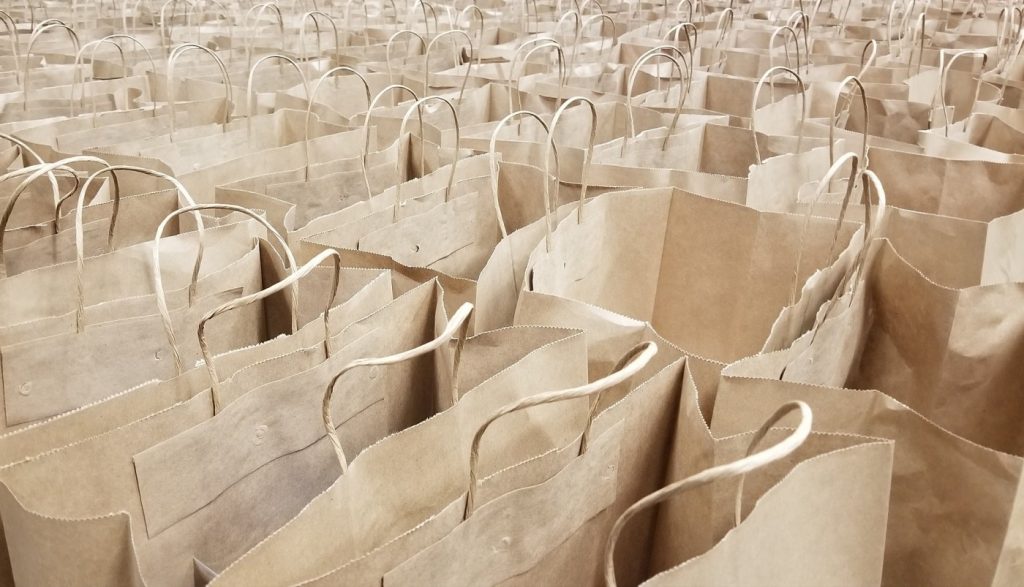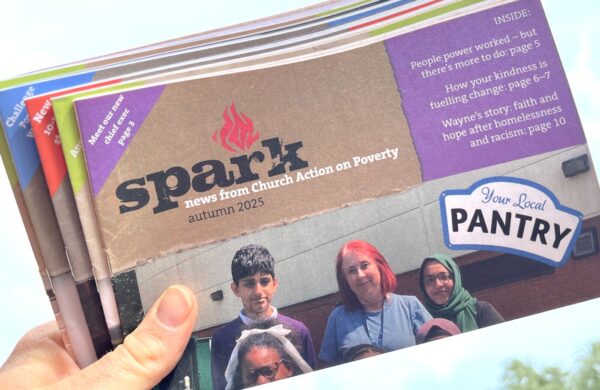A child hunger U-turn would be in all our interests
We need to provide lifelines so families can stay afloat, writes Gavin Aitchison
What would it mean to live in a levelled-up country?
What would that sort of society actually look like? What would be different, and what would it mean for people who have previously been held back?
Think of the trapped potential that could be unleashed; the dreams that could be realised. By its very nature, we can only imagine the creativity, ingenuity and inventiveness that would burst forth if everyone was able to pursue their prospects, unencumbered by systemic injustices.

Let every child reach their potential
It’s the sort of country the Department for Education presumably had in mind as recently as 2018, when it said investing in its holiday activities and food research fund would “help to ensure every child, whatever their background or wherever they are growing up, has the opportunity to reach their potential.”
In a levelled-up country, your life chances would not depend on the chance of your childhood circumstances. And by allowing everyone to flourish and thrive, whole communities – indeed the whole country – would benefit.
We are not there yet, are we? There are huge inequalities in Britain, cutting across race, class, gender and the regions, and the pandemic has exacerbated these. But a levelled-up country is supposed to be our national ambition, is it not? It is the oft-stated Government aim; the central theme of the Prime Minister’s seismic speech back in January, when the UK and the EU parted ways. There are clear steps that could be taken right now to start the process, and ensuring that children have enough to eat is one.
A commitment that must be honoured
The Government has said it should not be up to schools to feed children during the holidays, but the role of schools, per se, is beside the point. The UK has a duty to protect citizens of every age from hunger. We made that commitment more than 40 years ago. We signed the UN’s International Covenant on Economic Social and Cultural Rights in 1976, accepting that everyone has a right to an adequate standard of living, including food, clothing and housing. The agreement obliges us to take progressive steps towards that goal. We then advocated and signed the Declaration of Rome in 1996, seeking food security for all. We signed the UN Millennium Goals, committing to end hunger by 2030.
We’ve considered and decided this issue before and repeatedly accepted the principle that, in a compassionate society, the state should work to alleviate hunger. Holiday hunger is not a new phenomenon, but the need this year is greater and families, more than ever, have been harmed by circumstances wholly beyond their control.
106 years of evidence
Many of us will have been angered by Parliament’s recent decision on not to safeguard children’s nutrition over the winter. Saying that children must go hungry strikes many of us as abhorrent. But furthermore, it is also nationally foolish, damaging and self-defeating.
The decision will sweep huge numbers of children into hunger, and will harm their long-term prospects. That isn’t levelling up; it’s pushing down. We’ve known for generations that holiday hunger harms children. In 1914, Fred Jowett, the then Bradford MP demonstrated that children who ordinarily received meals in term time lost weight when provision stopped. In recent years, teachers have seen children returning from holidays malnourished and modern research by Northumbria University shows that the academic gap across income groups appears to widen after holidays.

Support makes all the difference
Children in low-income families have already been battered by the waves this year. All children lost out on vital education when schools closed during lockdown, but those in low-income families suffered most because of a lack of access to the devices or connections needed to access resources.
Those children should now be a national priority, lest anyone be cut adrift academically. We should provide every lifeline available to ensure people can get back on track. Allowing children to be swept further from their peers over the holidays will not do that.
The limited, localised, programmes that do safeguard children’s nutrition over the holidays are working. The most recent impact reports, from Derbyshire, Somerset and Coventry, are filled with comments from parents who have been left on a financial precipice by covid, and who were kept on solid ground over the summer thanks to this most elementary support. Families whose income fell below a manageable level amid the pandemic say the projects were the difference between managing and not. The public support for such projects is shown by the response to Wednesday’s vote, with many companies stepping up, but ad-hoc provision, while wonderfully compassionate, is no substitute for coordinated and adequate support across the board.
Every step matters
The day after Parliament’s vote on whether or not to safeguard children’s access to food, Boris Johnson told the Great Northern Conference that people in northern areas with higher covid restrictions faced “hardships and sacrifices” over and above everyone else. He said he did not underestimate the challenges and difficulties that lie ahead, nor the heartache of families and businesses. And he vowed: “This Government is going to be with you every step of the way.”
If levelling up the country is to happen, that first step needs to be forwards rather than backwards, and this decision should be reversed immediately.




Comments (02)
Comments are closed.